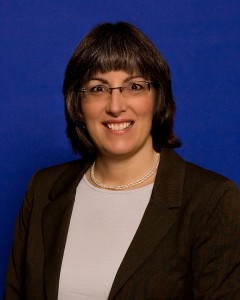NSU Newsroom
SharkBytes
Horizons
This version of NSU News has been archived as of February 28, 2019. To search through archived articles, visit nova.edu/search. To access the new version of NSU News, visit news.nova.edu.
This version of SharkBytes has been archived as of February 28, 2019. To search through archived articles, visit nova.edu/search. To access the new version of SharkBytes, visit sharkbytes.nova.edu.
NSU Optometry Professor Only American to Participate in Breakthrough Study
Rates of blindness and impaired eyesight have dropped by 50 percent over the past 20 years (from 1990 to 2010) in the highest income countries in the developed world, according to a study co-authored by Janet Leasher, O.D., M.P.H., F.A.A.O., associate professor and director of community outreach at NSU’s College of Optometry, for the British Journal of Ophthalmology (March 2014). Leasher was the only American optometrist to participate in the research.
Macular degeneration, a type of damage to the retina, now surpasses cataracts, or clouding of the lens, as the most common cause of blindness in the countries located in Asia Pacific, North America, Australasia, and Western Europe. However, cataracts are still the leading cause of blindness in other areas of the world, including Latin America and the Caribbean, with refractive error (not corrected with spectacles, contact lenses or refractive surgeries) being the second highest cause of blindness worldwide and the highest cause of moderate and severe vision impairment worldwide.
The good news is that in many cases, there are easy solutions to prevent harm to the eyes. Once the damage has been done, it is much more difficult to reverse the effects.
Simple life changes, such as wearing sunglasses with 100 percent ultraviolet protection, eating healthfully, and quitting smoking can greatly reduce the chances of developing one of these conditions.
Additionally, it is very important to visit an optometrist or ophthalmologist regularly. Your eye doctor can detect these issues in an early stage and even help prevent further vision damage. You will save money in the long run and also maintain your overall health in the process.
Like most health related initiatives, Leasher urges you to get your eyes examined annually before it is too late and decrease your chances of blindness and vision loss.
You can make an appointment with your eye doctor or visit Nova Southeastern University’s (NSU) eye clinics located in Davie, North Miami Beach, Fort Lauderdale and Kids in Distress in Wilton Manors. For more information, please call (954) 678-2273.
